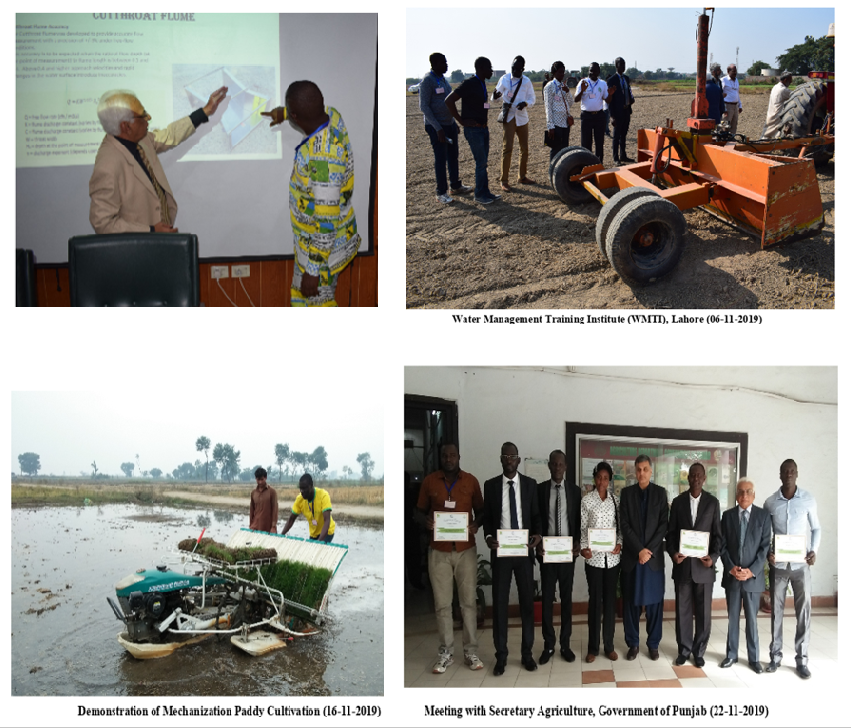Pakistan Agricultural Coalition (PAC), led by Project Development Specialist, Mr. Chaudhry Muhammad Ashraff, organized the “Training of Trainers on Precision Land Leveling, Ploughing and Mechanized Paddy Cultivation” for SEMRY/PULCI/MINEPAT technical staff from Cameroon in Pakistan.

This 23-days intensive capacity building program was conducted during 1st-23rd November 2019 that comprised of three modules. The first module included classroom sessions as well as field exercises regarding principles of precision land leveling (PLL), conducting topographic surveys, preparing farm/field designs, working and troubleshooting of LASER land levelling (LLL) equipment etc. The second module comprised of field demonstration of land preparation techniques for paddy planting by using variety of tractor mounted small-scale implements as well as visit to various agricultural implements and LLL machinery/equipment manufacturing facilities. The third module covered practical exercises of mechanized paddy cultivation practices starting right from nursery raising to harvesting.
The training is in line with the Government of Cameroon’s envisaged plan to promote precision land levelling and mechanized cultivation practices through creation of private sector service delivery mechanism in Far-Northern region of the country. This initiative is being launched under the upcoming VIVA-Logone and VIVA-Benue projects planned to be implemented with the World Bank assistance. These projects will be implemented through Society for the Expansion and Modernization of Rice Cultivation in Yagoua (SEMRY) and “Ministry of Agriculture” Ministere De L’economie de la Planification et de L’amenagement du Territoire (MINEPAT). The Government of Cameroon and the World Bank decided to get the senior staff of SEMRY and MINEPAT trained in the envisaged activities under their ongoing “Flood Emergency Project” Project d’ Urgence de Lutte Contreles Inondations (PULCI) from Pakistan because of having an effective and practical expertise in these fields.
The training program was conducted in Pakistan’s leading institutions such as the On Farm Water Management Training Institute at Lahore, Rice Research Institute at Kala Shah Kaku in Sheikhupura, Agricultural Mechanization Research Institute at Multan, and National Agricultural Research Centre of Pakistan Agricultural Research Council at Islamabad.



